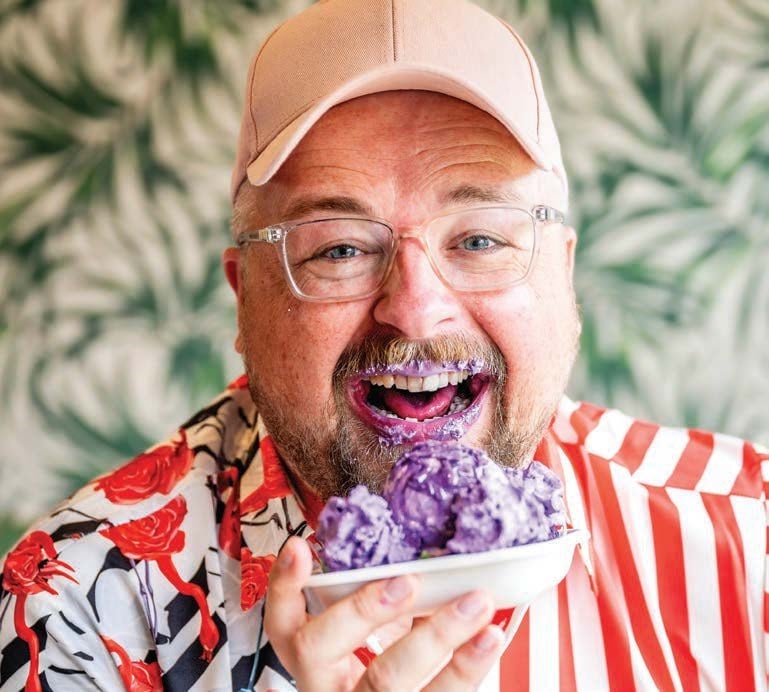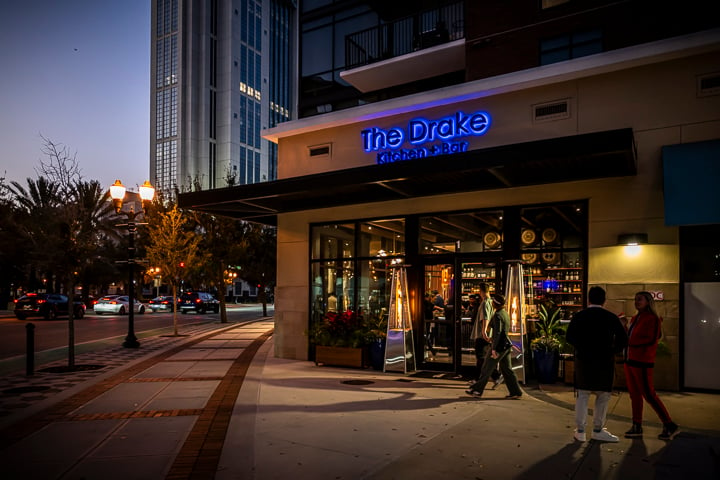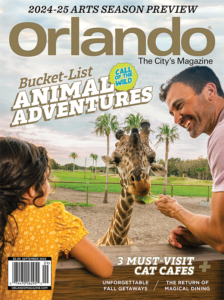Food & Drink with Brendan O’Connor: The Key to Sustainable Eating
Mindful eating and supporting local business are vital steps to sustainable eating.
There’s a trend in healthy eating circles that asks people to be mindful when they saddle up at the dinner table. And while that conjures funny images of meditating over your lasagna, the reality of the concept isn’t that far off.
Mindful eating is focusing on what you put in your mouth and being aware of how it’s nourishing your body. It asks the eater to really chew on their thoughts and feelings about food while swallowing, and forces them to pay more attention to the foods they’re preparing and how their bodies respond to them. The immediate results are that you may not need to eat as much as you usually do when you’re just shoveling things into your face hole, and you may feel and look better as a side effect. It also helps you focus on fresh, healthy, and properly sourced ingredients.
Mindful eating goes hand-in-hand with sustainability, because when you’re taking time to consider how the food affects your body, you take into consideration where it came from and how it was sourced. Mindful eaters try to be more selective and pick things that aren’t prone to overfishing, like Bluefin tuna, and grab something like cobia or snapper instead.
But that can be a super-daunting task when you’re hangry and need to carb-up after work. Here are some easy tips to stock your pantry with some sustainable goodies that don’t harm the planet.
Support Local: Make sure you source your goodies from local farms like Everoak Farm, HertaBerkSchwein Farms, and Lake Meadow Naturals, which have excellent reputations with owners and families alike. Buying from small boutique farms and producers ensures a smaller food footprint, which means less impact. It also means you’re probably supporting a family business rather than a corporation that could not care less about you or the environment. According to a report by The New York Times, 80 percent of the world’s sushi restaurants were sourcing their fish from one company, True World Group, a corporation founded by cult-adjacent Unification Church and a man who believed he was the second coming of Christ. If a dude at the farmers market tried to tell you something similar, you’d at least have the option of spinning on your heel and grabbing your groceries somewhere else. Somewhere far away.
Buy Organic: You shouldn’t care about spots on your apples; leave us the birds and the bees, please. Organic produce has fewer harmful pesticides involved in its production. They preserve natural resources and, in some cases, contribute to soil health and avoid using synthetic materials. If the task of reading labels is daunting, don’t worry about it. There are a number of great local restaurants that source organic as part of their business practice, including:
- Primo, 4040 Central Florida Parkway, Marriott Orlando Grande Lakes,
grandelakes.com - THE Ravenous Pig, 1234 N. Orange Avenue, Winter Park, theravenouspig.com
- Skyebird Juice Bar, 3201 Corrine Drive, Orlando, skyebird.com
Give a Shuck About Oysters: One oyster can filter about 50 gallons of water each day and, in doing so, help to purify the estuaries they live in like sexy little pearl-filled vacuums. Farming them creates almost no greenhouse gas emissions, they don’t require the added input of water, feed, fertilizer, or food, and they can help to seed wild oyster populations nearby. Farmed oysters are strictly regulated, too, so they are only allowed to grow in clean water. While the renowned Apalachicola Bay oysters are currently off limits to allow their populations to rebound, there are plenty of places to slurp up some Florida oysters, including:
- Luke’s Kitchen and Bar, 640 S. Orlando Avenue, Maitland, eatatlukes.com
- Osprey Tavern, 4899 New Broad Street, Orlando, theospreyorlando.com
- Reel Fish Coastal Kitchen, 1234 N. Orange Avenue, Winter Park,
reelfishcoastal.com
Mushrooms Eat Dead People: But people eat dead mushrooms, so you could say we’re in a typical relationship. Mushrooms are seen as the MVP of sustainable agriculture because they have minimal growing materials like water and land. Even a couple of local growers are putting out so much product they’re supplying shoppers at farmers markets and sourcing to local restaurants.
- Florida Shroom King, floridashroomking.com
- Fungi Jon, fungijon.com
- Kissimmee River Mushrooms, krshrooms.com
Conservation, Stewardship, and Biting Back at Invasives
Lionfish—The drag queen of the aquarium world, the beautifully spiked and venomous lionfish, can devastate entire reef habitats by gobbling up native species that keep algae in check. They taste a bit buttery, and a PR campaign convinced restaurants to serve them up in droves over the past few years. Now that the price per pound is similar to scallops, their popularity has dwindled a bit, but you can still spear your own and cook it at home.
Wild boar—There are wild pigs in every county of the state, and they can tear up entire groves in their search for things to eat. They can even charge humans if they get too close, so Florida doesn’t require people to have a hunting license when they shoot them. Because of strict regulations, you won’t find wild hog meat in a restaurant any time soon, but you can definitely fill a freezer or two if you go hunting with a friend. The locals will thank you.
Surinam cherry—You won’t need a weapon to enjoy this invasive species as it grows on a bush. When ready, Surinam cherries are bright orange or deep red and look like cute little pumpkins. The fruits are so yummy, they’re often gobbled up by local birds and small mammals and spread around the neighborhood. If you have one on your street, there are likely more just around the corner. They taste like a smokey chutney on their own but go great with other berries if you’re making a jam. I like them with loquats.
Conservation in most eco circles is seen as the active and responsible use and protection of the natural environment through sustainable practices that help to enhance ecosystems and our collective well-being at the same time. But that’s tough to do when alien creatures are disrupting Florida’s natural balance.






